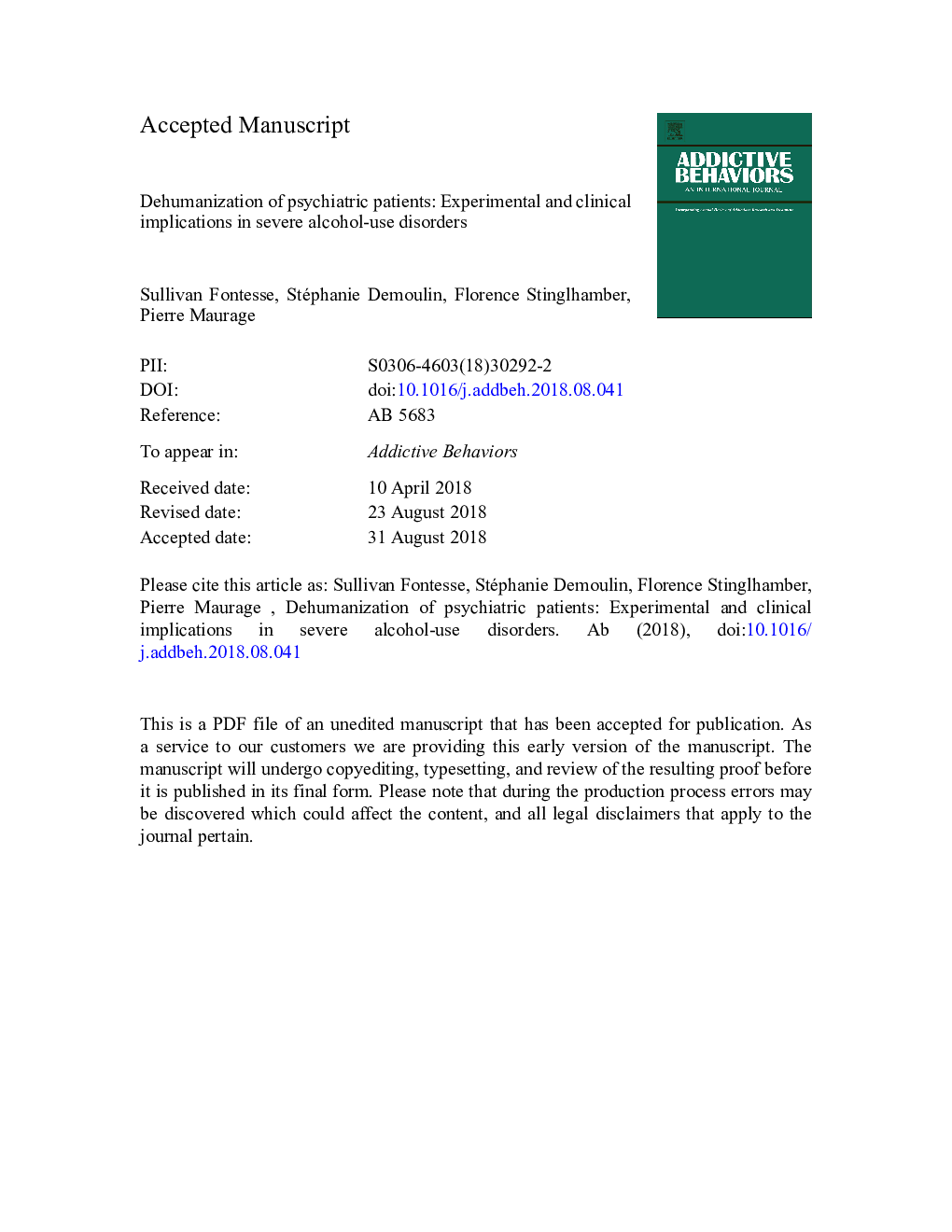| Article ID | Journal | Published Year | Pages | File Type |
|---|---|---|---|---|
| 11263661 | Addictive Behaviors | 2019 | 35 Pages |
Abstract
Dehumanization, defined as the denial of one's membership to humanity, is a process repeatedly reported in extreme contexts (e.g., genocides) but also in everyday life interactions. Some antecedents of dehumanizing experiences (e.g., social exclusion, negative stereotypes) have been reported among patients presenting psychiatric disorders, but dehumanization's experience remains completely unexplored in addictive disorders. We propose a theoretical model and research agenda to overcome this limitation and to improve our understanding of dehumanization's experience in psychiatry, with a special focus on alcohol-related disorders. We also propose much-needed clinical avenues to reduce dehumanization in clinical contexts, centrally by (1) improving dehumanization awareness among medical workers; (2) reducing the need for healthcare workers to use dehumanization to alleviate professional exhaustion; and (3) optimizing medical training to increase empathy toward patients. Finally, some additional improvements are proposed to promote patient's choices, comfort, dignity, and ultimately humanity in hospitals.
Related Topics
Life Sciences
Neuroscience
Behavioral Neuroscience
Authors
Sullivan Fontesse, Stéphanie Demoulin, Florence Stinglhamber, Pierre Maurage,
